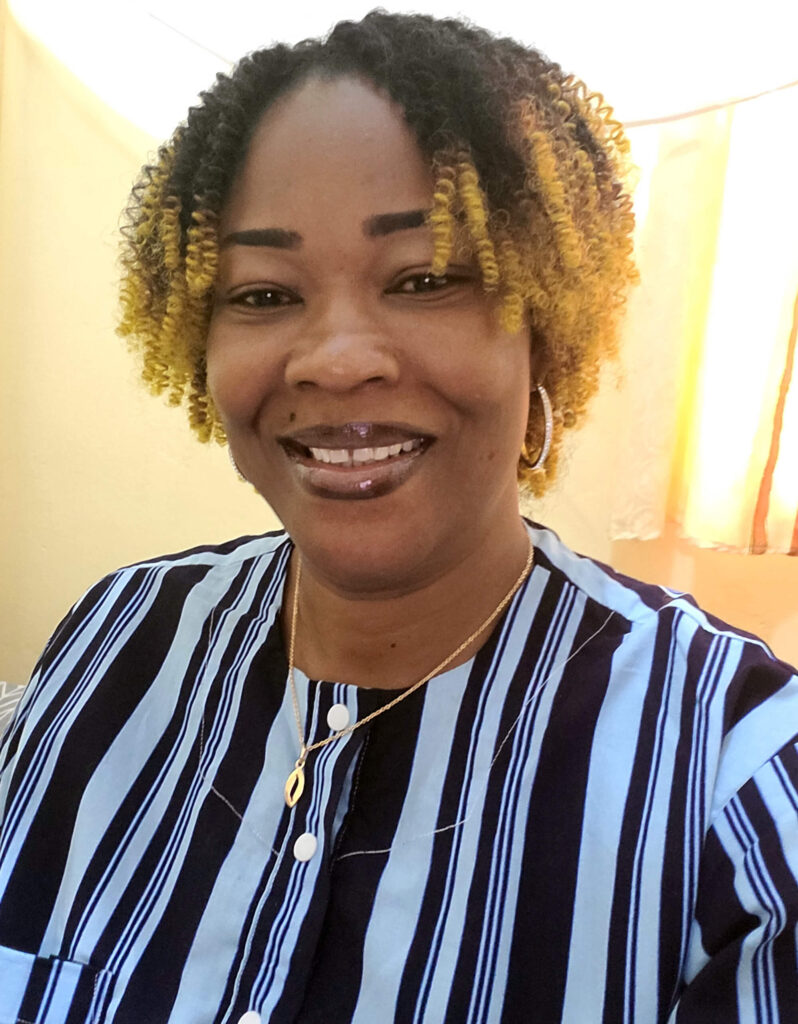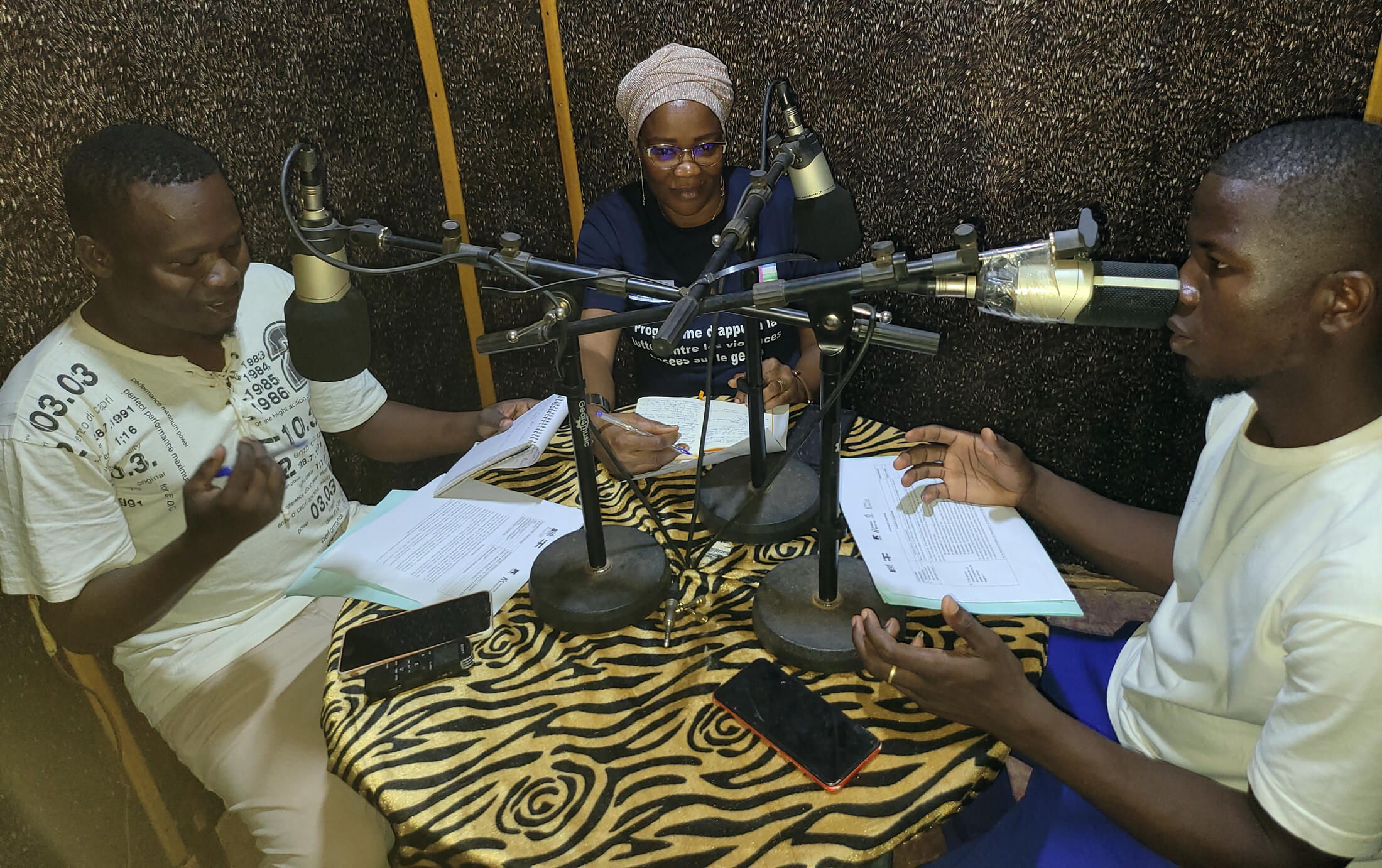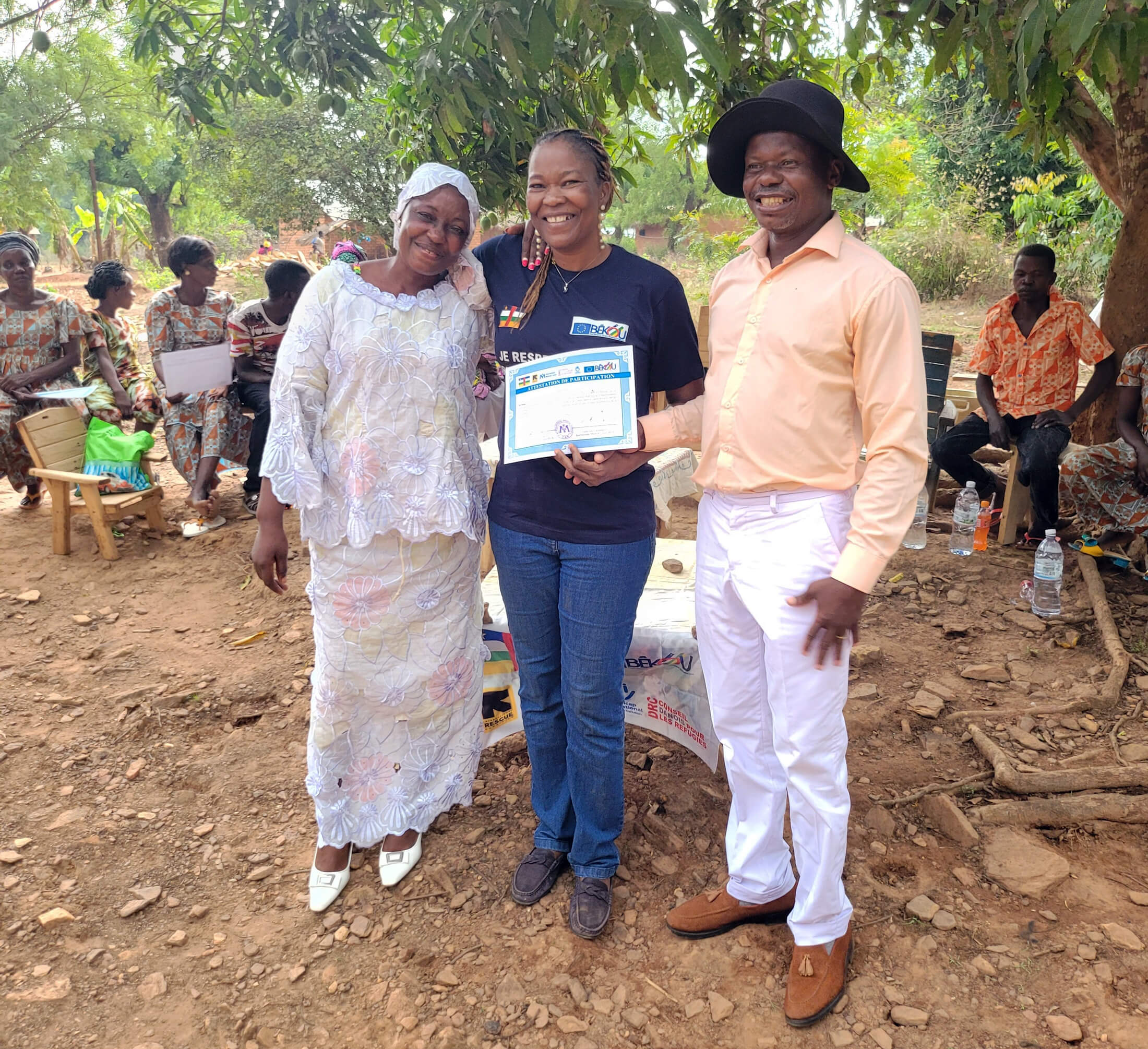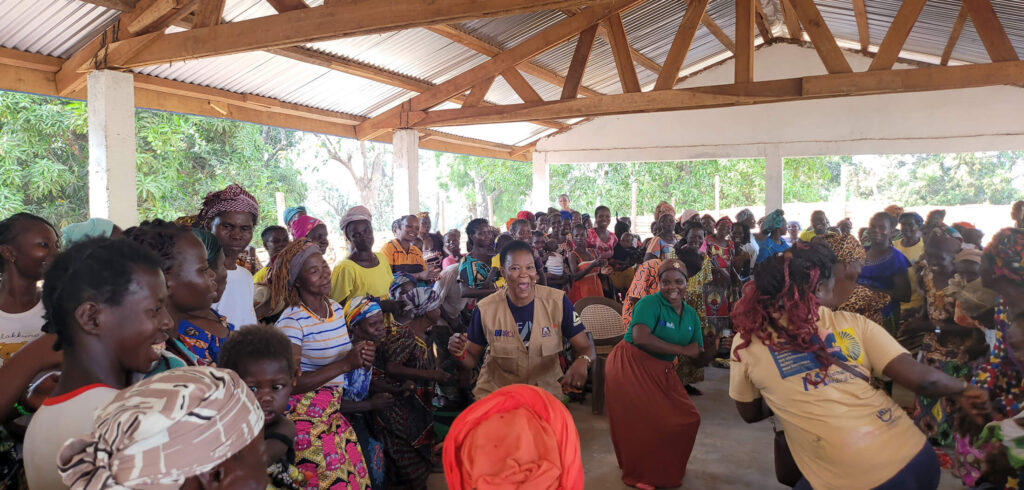The Central African Republic (CAR) mission’s gender-based violence (GBV) work has been life-changing for women—especially widows—in Bambari.
“Thanks to our activities, I don’t go unnoticed in the streets of Bambari,” says Bedi Bienvenue, who has been GBV Technical Manager at our CAR mission since 2021. “Women, girls, authorities—they all show me their gratitude for International Medical Corps’ programmes.”

In addition to the prevention of and response to gender-based violence, the CAR mission’s GBV activities are aimed at economic empowerment and include rapid economic support, village savings and loan associations (VSLAs), life-skills courses and support for income-generating activities (IGAs). These activities contribute to the transformation of harmful cultural norms, and they help women and girls develop economic and social autonomy, resilience and decision-making abilities. In International Medical Corps’ dedicated safe spaces, women and girls have access to vital information, learn from each other’s experiences and build self-confidence—all of which help them to manage their daily lives and stay safe from GBV.
“The main objective is for women, girls and other people vulnerable to GBV to have access to quality care and socio-economic programmes in an environment where GBV is not tolerated and survivors are not stigmatised,” Bedi says.
More than 2,700 women who have benefited from International Medical Corps’ IGA, VSLA and rapid economic support offerings now have sources of income, which they can use to send their children to school and meet the basic needs of their households. Some women have even built their own houses, now that they are able to pay for land to build on and plots to cultivate. Bedi says that even the faces of these women have changed—they are now happy and smiling in public, despite more than a decade of religious conflict between Christians and Muslims in CAR.

“I have worked to unite populations divided by religious conflicts that have caused deaths for more than 10 years,” Bedi says. “The greatest success is the fact that, today, Christian and Muslim women take part in our GBV activities together.”
Many of these women have also taken a more active role in the leadership and development of their communities. One widow who is a member of the local VSLA was elected president of the parents’ association at a primary school—the first time in the history of school management in Bambari that a woman has held such a role. As soon as she took office, she lowered the school’s monthly fees by more than 20% to enable parents to send their children to school.
Because of our awareness-raising programmes, people in Bambari are also turning against female genital mutilation (FGM). A woman who was once in charge of FGM ceremonies in her community is now urging her peers to put an end to the practice. Another community leader reported an entire family that had performed FGM on a young girl, leading to the arrest and punishment of the perpetrators. Seeing this, several other families who had scheduled FGM for their daughters cancelled their plans.

In addition, the men of Bambari are on board with, and are taking ownership of, our GBV interventions. Local Muslim leaders set up a committee of seven imams who raise awareness about the harmful effects of GBV during their Friday sermons. Sixteen community leaders who had attended our awareness campaigns gave their wives money for income-generating activities, even though women had traditionally been forbidden from earning money in their communities. And the families of community leaders host GBV survivors when they go to Bambari to file a complaint against their perpetrators and wait for legal action to take place.
In addition to livelihoods and GBV programmes, our GBV team also offers literacy services. The literacy rate of women in Bambari is only about 20%, which drives GBV and prevents women and girls from participating in certain activities that could help them get ahead. Bedi remembers encountering a woman at the market, months after the woman had been a participant in our literacy activities. The woman greeted Bedi and Bedi replied to her in the local language of Sango. She was surprised when the woman responded to her in French. “Now I speak French, thanks to you,” the woman told Bedi. “We can speak in French together.”
“You can’t imagine the joy of hearing an illiterate person speak French to you,” Bedi says. “Truly, the effects of International Medical Corps’ activities are extraordinary. It’s so moving and wonderful that every day we have testimonies of lives saved and hope regained.”
